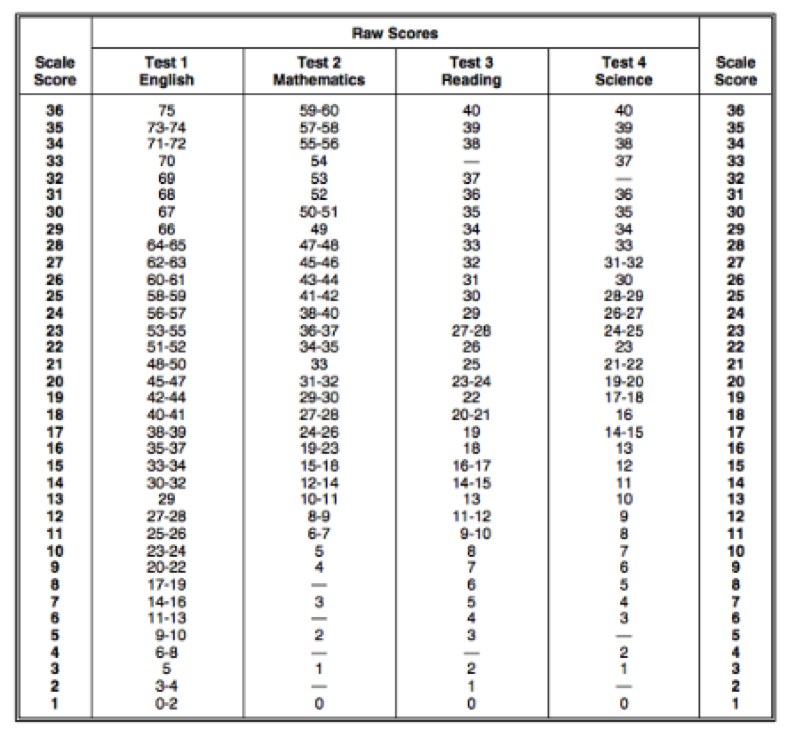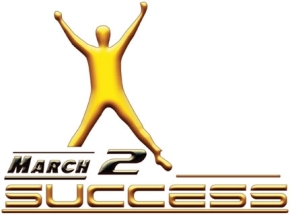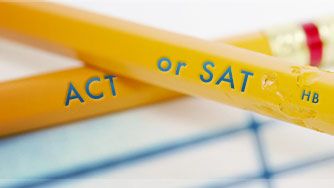Important 2024-2025 ACT/SAT testing information & dates
Registration deadlines & test prep resources posted
ACT:
Click HERE to view the 2024-2025 ACT Registration Deadlines & Test Dates.
Wahoo High School will be a host site for the ACT on the following dates:
Saturday, June 14, 2025
**NOTE: these dates are tentative, and are subject to change. Please go to act.org for updated information.
Members of the WHS Junior Class are scheduled to take the free statewide ACT on Tuesday, April 8, 2025. More information about that opportunity will be available soon.
ACT/SAT RESOURCES:
Click HERE to view ACT Resources for Students and Families, ©2015 by ACT.
Click HERE to view a listing of ACT & SAT Resources, compiled by the EducationQuest Foundation.
Wahoo High School's ACT Code Number:
When a students register for the ACT, they will have to submit a code for their high school, and a code for the location where they plan to take the ACT. The codes make it easier for ACT to keep track of the high school and test center of everyone who takes the exam. If a student enters the wrong high school code, the student’s high school may not get the score report.
WAHOO HIGH SCHOOL'S ACT CODE NUMBER
282-440
Additional testing center code numbers for other testing locations can be found on the ACT website by clicking HERE.
-----------------------------------

On To College with John Baylor (formerly John Baylor Prep)
All students, in grades 9-12 at Wahoo Public Schools, have a free, online account with On To College with John Baylor.
To begin using this service, students should visit the On To College website - http://www.ontocollege.com/ - and log in using their school username and password. If unsuccessful, students can contact Mr. Privett or Mr. Harris for assistance.
On To College prepares thousands and thousands of students annually for the ACT and SAT tests. With average score jumps of about 2 ACT points and 200 SAT points, this program is proven, effective, fun, entertaining, and full of college application advice.
-----------------------------------
Why take the ACT?
Click HERE to access You've Got This., a publication of ACT that explains why taking the ACT is a good idea. (Click HERE for Spanish version)
For more information about this program, please go to www.actstudent.org.
ACT Prep Guides
Source: blog.prepscholar.com
Posted by Halle Edwards Jan 27, 2015: Dr. Fred Zhang Feb 5, 2015: Laura Registrato Jan 3, 2015
ACT Strategy Mistake
ACT takers already know not to leave any questions blank – after all, the ACT doesn't penalize guessing. But many students take this to mean that they should spend substantial time on each question. These mistaken students think, "If I have to answer all questions, doesn't it make sense to spend at least 20-30 seconds looking at each?" The answer is a big, fat NO.
Let’s be clear: you have to give an answer for each question, but you DO NOT need to spend 20-30 seconds looking at each question. I am a strong advocate of blind guessing for many students on many types of questions.
First, What is blind guessing? Blind guessing is exactly what it sounds like -- guessing on a question without even reading it. Just filling in "C" or "G" at random. This might sound crazy, but for many students this is not a bad strategy. In particular, you should always blind guess when you encounter a problem way beyond your difficulty threshold. For example if you usually score a 15 on the math section, then most of the problems in the "hard" towards the end of the section will be way above your skill level. You get .20 points (in expectancy) just for blind guessing, which means you have a 1-in-5 chance of getting it right. And it takes 1 second!
Now, since these are hard questions, and you usually score a 15, it may take you 2 minutes just to understand each question, and another 2 minutes to eliminate a couple of answer choices. This is a really bad use of four minutes to just get .4 extra points (in expectancy). Besides, you may not even eliminate correctly.
ACT Test: By Section
English
The English section of the ACT has 75 multiple-choice questions, meaning the highest possible raw score you can earn is 75. Remember that your raw score is just the total number of questions you answer correctly. Questions you leave blank or answer incorrectly are simply not added on to your raw score.
The subscores on the English section are for Usage/Mechanics (40 questions) and Rhetorical Skills (35 questions). To give a scoring example, say you answer 55 questions correctly on the English section, get 15 wrong, and leave 5 blank. Your raw score will be 55, the total amount of questions you got right. Using ACT’s table below, we can estimate that a raw score of 55 would get a scaled score of 23.
Mathematics
The Math section of the ACT has 60 questions total, meaning the highest possible raw score is 60. The subscores are given for Pre-Algebra/Elementary Algebra (24 questions), Intermediate Algebrate/Coordinate Geometry (18 questions) and Plane Geometry/Trigonometry-based problems (18 questions). To take a brief example, say you got 45 questions right, 5 wrong, and left 10 blank. Your raw score would be 45, which ACT estimates would scale to a 27.
Reading
The Reading section has 40 questions total, so your highest raw score here is 40. The subscores are given for Social Studies/Natural Sciences reading skills (20 questions) and for Arts/Literature reading skills (20 questions).
Science
The science section has 40 questions total, like the reading section, so the highest raw score here is 40. It is the only ACT section that does not have subscores, though it still has three distinct question types: data representation, research summaries, and conflicting viewpoints.
The Writing Essay (Optional)
If you take the ACT with writing, your writing score, a.k.a. the essay, sticks out more since it is not a part of your composite. You'll receive a composite plus your essay score. However, this doesn’t mean the essay should become the biggest priority on your study plan. Your subject area scores and composite score are the most important aspects of the ACT, so you should prioritize studying for the multiple-choice sections.
At the end of the day, the composite you earn on the ACT is by far the most important part of your score. Colleges that give scholarships based on high school GPA and standardized tests make those calculations based on the overall composite, not individual section scores.
In fact, even if you were to get an essay score on the low side, colleges evaluate your writing ability using a combination of your grades in English classes and your personal statement, in addition to performance on standardized tests. Admissions officers know the ACT essay is a first draft, written during forty minutes of high-stakes testing. The ACT essay will by no means make or break your application, but a high composite score can give you a huge boost, both in terms of admissions and potential scholarship opportunities.
Getting the Best Composite ACT Score
You will receive a composite ACT score as well as a score for each separate ACT test. Your Composite score and each test score (English, mathematics, reading, science) range from 1 (low) to 36 (high). The Composite score is the average of your four test scores, rounded to the nearest whole number. Fractions less than one-half are rounded down; fractions one-half or more are rounded up. Since the composite is averaged, you should work to maximize your subject area scores that you are strong in as well as working to minimize weaknesses. Just focusing on trying to fix your weak spots could actually cause you to miss out on points.
For example, say you have always excelled in English and History classes but struggle with math. You might think you should spend all your studying time drilling math problems. However, working to maximize your strengths – in this case reading and writing – could improve your score the most.
Let’s take two scenarios. In the first, you spend all of your time studying for the math section and get the following scores:
English: 28, Reading: 27, Math: 25, Science: 26
Composite: 27
Not bad! You got your math score up to a 25, which is just about the 80th percentile, and got a composite of 27, which is in the 87th.
But what would have happened if you had spent some time on English and Reading and less time on math? Getting just five more raw points on both the English and Reading sections could have a huge boost to your score. If those are personal strengths, picking up five points should be easy with some smart studying. So let’s say you spend some time on English and Reading and earn five more raw points on each section, and less time on math:
English: 33, Reading: 32, Math: 23, Science: 26
Composite: 29
So even if you got a lower score on math, the time spent studying on English and Reading could net you two higher section scores as opposed to just one, resulting in a higher composite.

Note: The information provided above is the opinions and facts of the article’s authors. Wahoo Public Schools is providing this information only as a convenience to the community and encourages users to consider reviewing other study tips when preparing for high stakes examinations.
OTHER FREE TEST PREP RESOURCES:

March2Success
March 2 Success, sponsored by the U.S. Army, is a FREE, no obligation tool that provides educational content to help anyone improve their knowledge and test scores in the areas of Language Arts, Mathematics and Science. Our content is provided by industry leaders Peterson's, Educational Options, and College Options Foundation. A great resource for preparing for the ACT, SAT and ASVAB test!
--------------------

My College QuickStart
My College QuickStart is an easy-to-use, online, personalized college and career planning kit available free of charge to all students who take the PSAT/NMSQT exam. The information and answers your child provided when they took the test are incorporated into this useful tool, and it presents their data back to them in four main parts:
* My Online Score Report: an enhanced score report that allows students to review each test question, the student's answer, and the correct answer with answer explanations.
* My SAT Study Plan: a customized SAT study plan based on student PSAT/NMSQT test performance, highlighting skills for review and practice.
* My College Matches: a starter list of colleges based on the student's state and indicated choice of major.
* My Major and Career Matches: major and career matches that are compatible with the student's general interests and personality type.
Access is available using the access code printed on the student's paper score report, and the tool can be utilized throughout high school. Using My College QuickStart together with your child is a great way to introduce and guide your child through important aspects of the college-going process.
College Board offers test prep resources for SAT, SAT Subject Tests and the PSAT/NMSQT. Information may be found at www.collegeboard.com.
--------------------
Some of the popular test prep options available include the following:
* Kaplan Test Prep offers live classroom and live online classroom test preps. For more information go to www.kaptest.com.
--------------------
For more information, please contact the Guidance Department of Wahoo High School at (402) 443-4332, ext. 3229, or email Mr. Harris at jharris@wahoowarriors.org.


 Launch the media gallery 1 player
Launch the media gallery 1 player